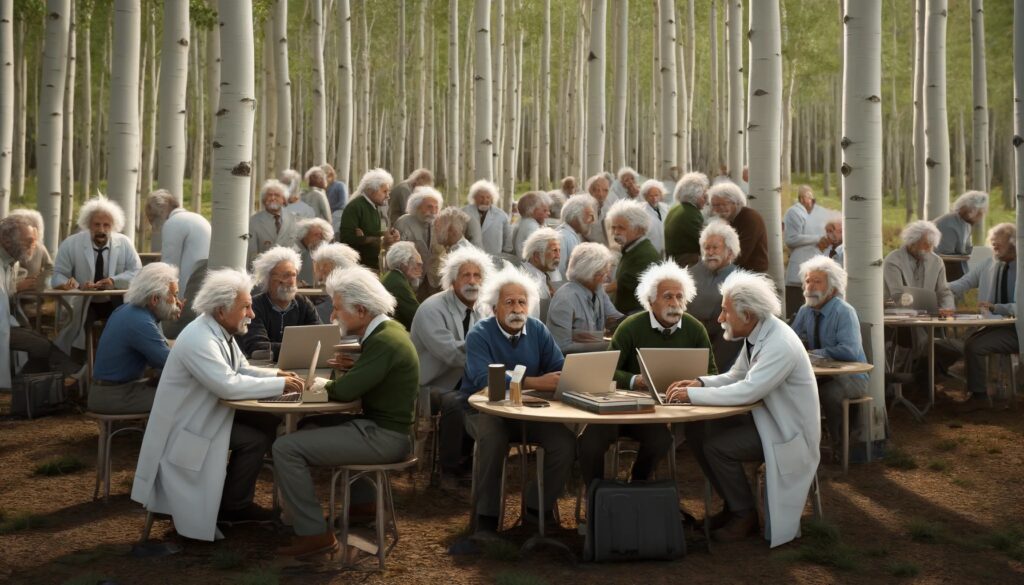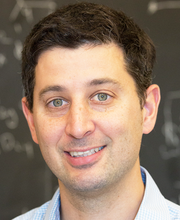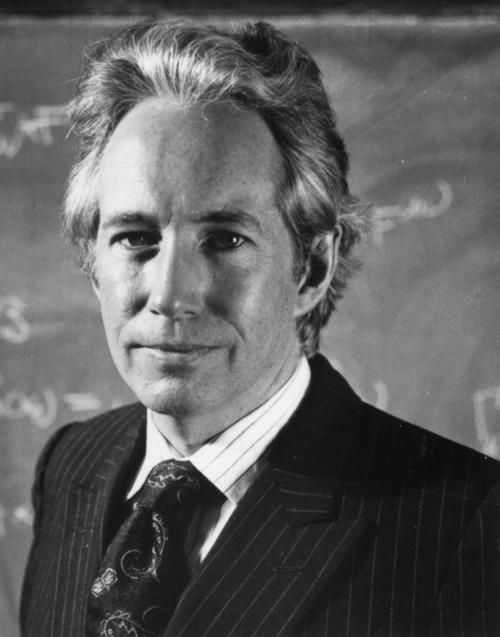

Public Lecture
10,000 Einsteins: AI and the Future of Theoretical Physics
Matthew Schwartz
Harvard University
Wed, Aug 28, 5:30–6:30pm
In this captivating public lecture, Matthew Schwartz examines how the integration of AI could amplify human intellect to unprecedented levels, transforming the landscape of scientific discovery. Schwartz, a distinguished physicist and educator, will discuss how AI can act as a catalyst, augmenting the capabilities of researchers to mirror the brilliance of thousands of Einsteins. The lecture will delve into the potential of AI to solve complex problems in theoretical physics, from unraveling the mysteries of quantum mechanics to advancing our understanding of cosmology and the fundamental forces of nature. Highlighting recent advancements and practical applications, Schwartz will illustrate how AI-driven research can lead to breakthroughs that were once thought impossible. Attendees will gain a profound understanding of how AI is poised to redefine the future of theoretical physics and drive innovation across disciplines. Join Matthew Schwartz for an enlightening exploration of how we can harness the synergy of AI and human intellect to unlock new frontiers in science. [This abstract was enhanced with AI.]

About Matthew Schwartz
Dr. Matthew D. Schwartz is a Professor of Physics at Harvard University and a leader of the NSF AI Institute for Artificial Intelligence and Fundamental Interactions in Boston. Prof. Schwartz is a theoretical physicist and has made seminal contributions to particle physics and machine learning. His best-selling textbook Quantum Field Theory and the Standard Model is used in classrooms worldwide. Schwartz anticipates a future where machines and humans will work in harmony towards the next breakthroughs in our fundamental understanding of the universe.
Heinz R. Pagels Public Lecture Series
Heinz R Pagels was a professor of physics at Rockefeller University, president of the New York Academy of Science, a trustee of the Aspen Institute, and a member of the Aspen Center for Physics for twenty years, serving as a participant, officer, and trustee. He was also President of the International League for Human Rights. His work on chaos theory inspired the character of Ian Malcolm in the Jurassic Park book and movies. A part-time local resident, Professor Pagels died here in a mountaineering accident in 1988. His family and friends instituted the lecture series in his honor because he devoted a substantial part of his life to effective public dissemination of scientific knowledge.
